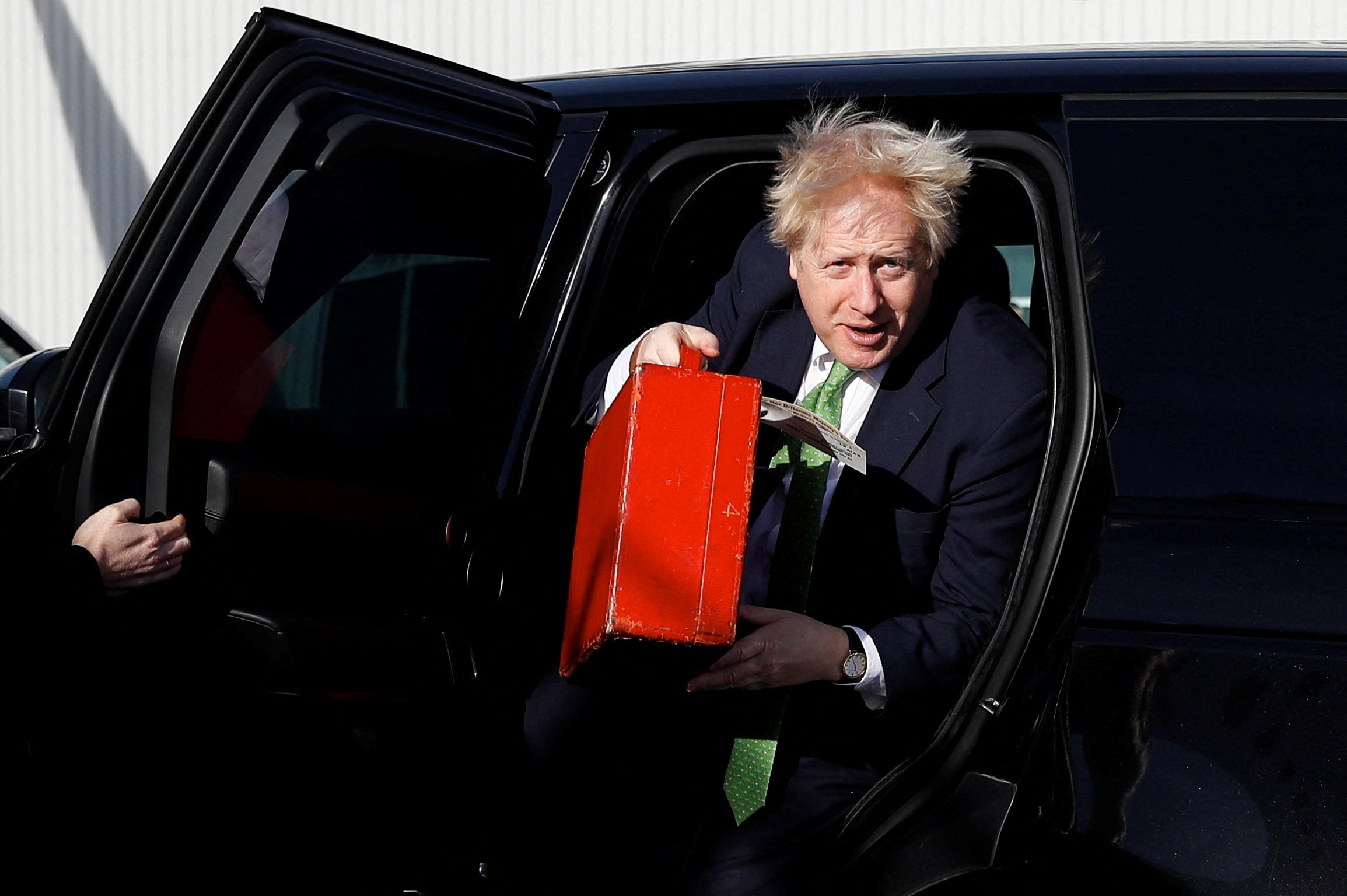Boris Johnson could still survive – and this is how
It turns out that getting 54 Tory MPs to demand a vote of no confidence in their leader is harder than it looks, writes John Rentoul


Boris Johnson is doing something as difficult as that fairground game where you have to thread a hoop along an irregular-shaped wire without touching it. Touching the wire sets off a buzzer and you lose the game. Johnson has to get to the end of the wire, the election of 2024, without touching it, or he will be out of office.
It is possible that he could survive, with steady nerves and a bit of luck. He had an extraordinary stroke of luck in the bureaucratic snarl-up between the Metropolitan Police and Sue Gray, the civil servant investigating the alleged lockdown-busting parties in Downing Street. As a result most of the damaging detail was left out of Gray’s “update” yesterday. It was as if someone jogged Johnson’s elbow and accidentally got him round a tricky bend without touching the wire.
That bought time for another fightback. One element of it was a serious policy change that would probably have happened anyway: Sajid Javid, the health secretary, yesterday dropped the plan to sack unvaccinated NHS staff. That pleased one faction of Conservative MPs who could be persuaded that keeping Johnson is their best bet for avoiding new coronavirus restrictions.
Another element was the return of Lynton Crosby, the Australian adviser who has a reputation among MPs for being a true Conservative and an election winner. This won a big cheer at last night’s meeting of the 1922 Committee of Tory backbenchers, although Crosby himself played down the story: “I am not going into No 10 or working in that way. If any Conservative prime minister asked for advice I would give it.”
Who knows if Crosby advised Johnson to use the slur about Jimmy Savile against Keir Starmer in the Commons yesterday. But it was a good example of the tactic espoused by Crosby of throwing a “dead cat” on the table to distract people from whatever they were talking about before.
It distracted people all right, but it may have been counterproductive in that some Tory MPs didn’t like it – even if Julian Smith, the former Northern Ireland secretary sacked by Johnson, was hardly likely to support him anyway.
It turns out that getting 54 Tory MPs to demand a vote of no confidence in their leader is harder than it looks. Most MPs would do anything rather than make a decision. Even if they are forced to decide, if a vote of confidence is triggered, some MPs may hold back even if they want Johnson out. George Osborne tells the story of how he, David Cameron and Boris Johnson, the three young MPs who prepared Iain Duncan Smith for Prime Minister’s Questions, agreed to vote against their leader in the confidence vote in 2003. Afterwards, Cameron admitted sheepishly that he had reneged on their deal and voted to support IDS. “‘What? Why?’ said Boris. ‘I don’t want the Tory party to get into the habit of deposing its leaders,’ David replied.”
That is why, incidentally, I think that Theresa May, for all her sharp attacks on her successor, will not be writing a letter to Sir Graham Brady, the chair of the 1922 Committee.
The next foreseeable twists in the wire for Johnson are the police investigation and the May local elections, whichever is earlier. If the prime minister is served with a fixed penalty notice then the buzzer will go off and it will be all over. The idea that such a thing could be kept secret is absurd, and it would mean that the prime minister had broken the law. But it is not certain, despite the damning “general findings” by Gray in her update yesterday, that the police will decide that Johnson himself is a criminal.
If he can get past that bend the local elections are the other obvious point that might trigger the 54 letters. If the Tories lose control of Wandsworth and Westminster, two famous London councils, Johnson’s reputation as a vote-winner will suffer.
To keep up to speed with all the latest opinions and comment sign up to our free weekly Voices newsletter by clicking here
Kenneth Baker, who was Margaret Thatcher’s party chair, was able to spin a bad set of local election results as a triumph because the Tories held Wandsworth against expectations in May 1990. Mind you, she was gone as prime minister six months later. But if Johnson can avoid introducing a policy as unpopular as the poll tax, he may be able to survive a little longer.
Johnson’s hope must be that the anger over double standards during lockdowns will fade. It may do somewhat, but I think it would be easy enough for Labour to revive it in the run-up to the next election. You can imagine the social media campaign: “Law makers cannot be law breakers,” and “Look granny in the eyes and tell her you didn’t bend the rules.”
Johnson may survive for longer than seemed possible just a week ago, but he is almost certain to set the buzzer off before too long – and it will be game over.






Join our commenting forum
Join thought-provoking conversations, follow other Independent readers and see their replies
Comments